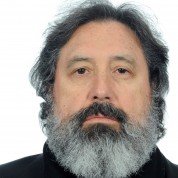
Patricio V. Marquez
Lead Public Health Specialist
World Bank Group (WBG) HNP GP
United States of America
Patricio V. Marquez, from Ecuador, is a World Bank Lead Public Health Specialist, who coordinates the Global Tobacco Control Program and the Global Mental Health initiative at the World Bank Group. He has worked in more than 75 countries across different regions in the world. He co-led the WBG team that designed the Ebola Emergency Response Program for West Africa and prepared the US$390 million Ebola Emergency Response Project for Guinea, Liberia and Sierra Leone. He was deployed to WHO Geneva to help coordinate the WB and WHO interface on the Global Response to Ebola over the September-December 2014 period. He also co-led with WHO the Thematic Working Group on Health, Nutrition and Water and Sanitation for the preparation of the UN/WBG/EU/AfDB multi sector Ebola Recovery Assessment Report over January-March 2015. Additionally, he was part of the core teams that prepared the US$1.3 billion Global Avian Influenza Preparedness and Control Framework Program in 2006, and the US$1.2 billion Global Food Response Facility in 2008--both covered more than 70 countries across the world. He served as Public Health Focal Point at the Health, Nutrition and Population Global Practice of the World Bank over June 2014-June 2015, and over 2013-2014, he served as Human Development Sector Leader for Ghana, Liberia and Sierra Leone, as well as for Malawi, Zambia and Zimbabwe, based in Accra, Ghana. Prior, he served as Health Cluster Leader for the countries in Southern Africa in 2011-12. During 2004-2011, he worked in the Europe and Central Asia (ECA) region, particularly in the Russian Federation, Georgia, Azerbaijan, and the Central Asian Republics, managing WBG-funded health system reform and disease-specific projects. Over 1988-2003, working as a lead public health specialist, he managed health systems development and science and technology projects funded by the WBG in Argentina, Brazil, Chile, Colombia, Dominican Republic, Ecuador, Mexico, Paraguay, and Venezuela, and led the preparation and start up implementation of Multi Country HIV/AIDS Program in the Caribbean Region that covered 9 countries and CARICOM, and that introduced ARV treatment in 2002-among the first programs in the world to do so. Over 2015-2017 he was a member of the Global Work Group of the Advisory Committee to the Director of US Centers for Disease Control and Prevention (CDC), providing recommendations and counsel global public health issues. He has authored reports on global mental health, tobacco taxation at global and country levels, as well as on non-communicable diseases and road traffic injuries in Sub-Saharan Africa, road safety in Europe and Central Asian countries, the economic cost of road safety globally, the demographic and health crisis, as well as health system challenges in Russia, blood transfusion systems and the spread of HIV in Central Asia, HIV/AIDS in the Caribbean, non-communicable diseases and health systems in Chile, and health system assessments in several countries in Latin America and the Caribbean, Africa, and Eastern Europe. He also co-authored a report on non-communicable diseases (NCDs) in China, a policy brief on NCDs and road traffic injuries in Cambodia, and in 2016/2017 he was part of a team that prepared a global report on the economics of anti-microbial resistance (AMR). He pursued his university studies at the George Washington University and Johns Hopkins University Bloomberg School of Public Health, and done executive program training at Harvard University and London School of Hygiene and Tropical Medicine.
| SESSION | |||
|---|---|---|---|
| 1 FEB, 2019 | 15:30-17-30 hrs. | PS 1.4 | Interrogating [fiscal/public] Policies and Politics |
